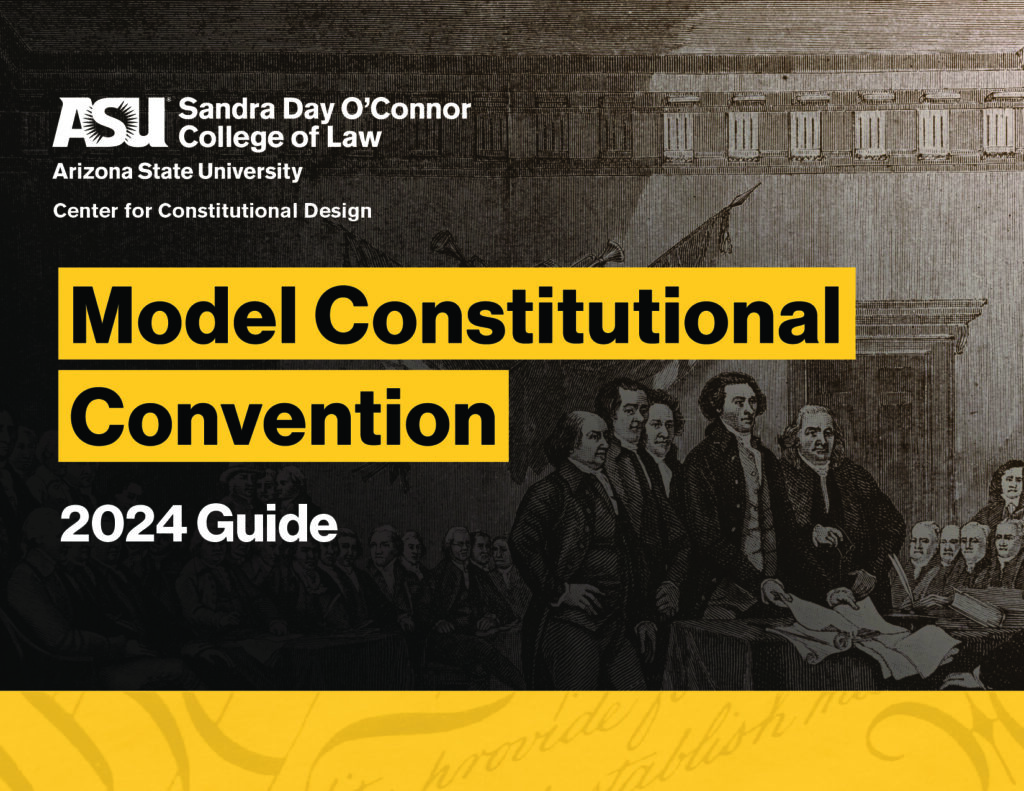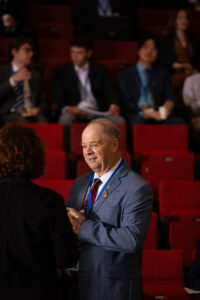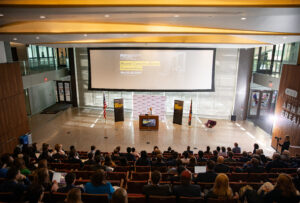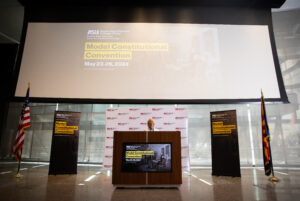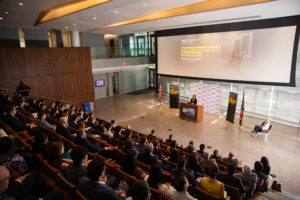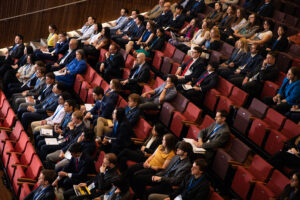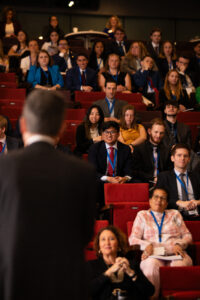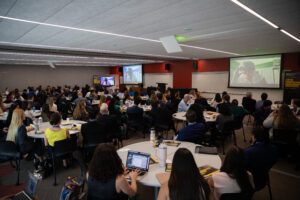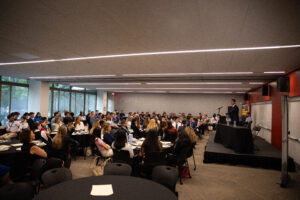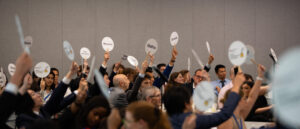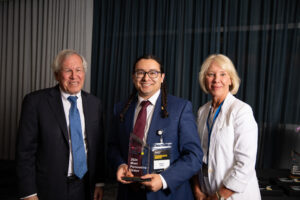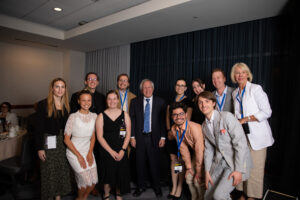The mission of the Model Constitutional Convention is to engage and immerse students in the possibility of constitutional change. Through collaborative amendment drafting, respectful dialogue, and principled compromise, participants gain firsthand insight into what it would take to reform the U.S. Constitution. The Convention also fosters civic responsibility, develops future leaders, and inspires renewed faith in the power and promise of democracy.
Event Description
The Model Constitutional Convention (MCC) is modeled after a form of Convention described in Article V of the U.S. Constitution. The premise of the MCC is that pursuant to Article V of the Constitution, Congress has heeded a call from 2/3 of the states to call a convention for proposing amendments. Delegates representing each state gather to propose, debate, and vote on amendments. Because the MCC is a simulated exercise over a three-day time period, its procedures constitute an approximation of the Article V requirements to amend the Constitution. For example, Article V requires 3/4 of the state legislatures to ratify amendments. In contrast, the MCC requires a 3/4 vote at the Convention for an amendment to be approved.
This year’s MCC will take place May 21–24, 2026 at WashU Law in St. Louis. This national event invites undergraduate, law, and masters students with an interest in constitutional law, history, design, and reform to take part in a transformative learning experience focused on the constitutional amendment process, civic engagement and dialogue, and democratic principles and procedures. Students who are selected to participate in this event will receive a stipend to cover the cost of their travel, and they will be provided food and lodging while at the Convention.
The 2026 MCC will build on the success of the inaugural convention, hosted in 2024 by the Sandra Day O’Connor College of Law at Arizona State University. This short documentary captures the spirit and impact of the event, and this essay, published in the Florida Law Review, provides a more detailed summary and reflection.
Please reach out MCC2026@wustl.edu with any questions about the event.
California
Support and Leadership
The Model Constitutional Convention is made possible thanks to the generous support of the John Storr Fund, the Frick Initiative of WashU Law, our close collaboration with our founding partner ASU Law and its Center for Constitutional Design, and the guidance and expertise of our co-sponsoring institutions: UC Berkeley School of Law, University of Wisconsin Law School, University of Texas School of Law, University of Florida Levin College of Law, Harvard University’s Amendments Project, and the National Constitution Center.
Our Team:
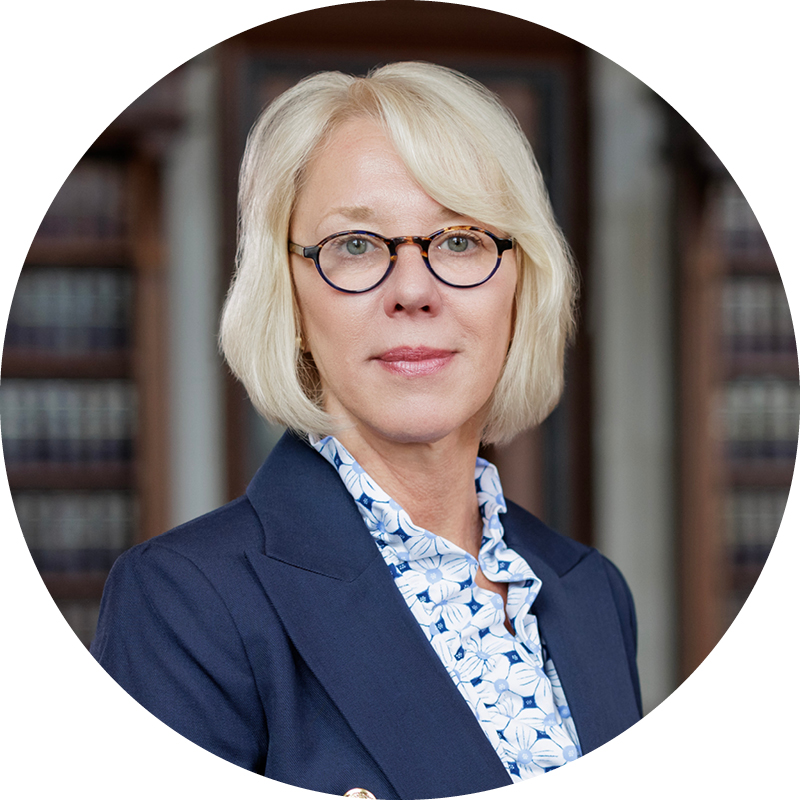
Stefanie Lindquist is the Nickerson Dean and Professor of Law at WashU Law, and is the creator and faculty director of the MCC. She piloted the first MCC in May 2024 at ASU Sandra Day O’Connor College of Law, where she served on the faculty and was Executive Director of the Center for Constitutional Design.
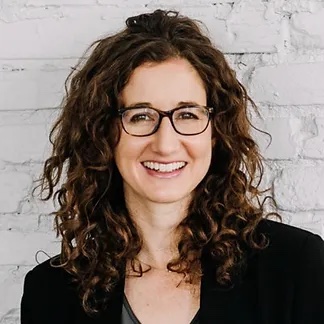
Neta Borshansky is a consultant and lawyer and serves as the staff director and strategic advisor to the MCC, working alongside all members of the WashU Law team to execute this project.
2026 Application
The application window will open on November 1, 2025, and will close on January 15, 2026. Stay tuned for application instructions.
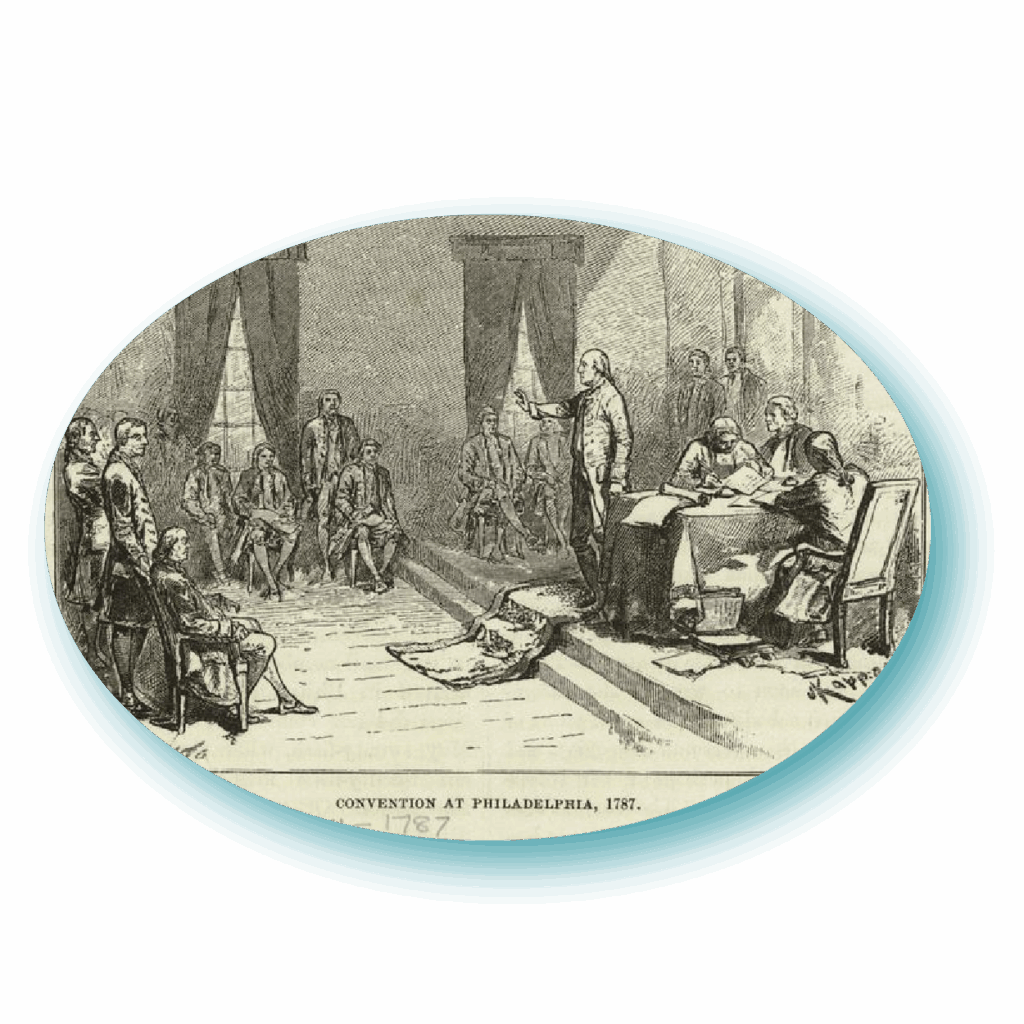
Resources
ASU 2024 Model Constitutional Convention
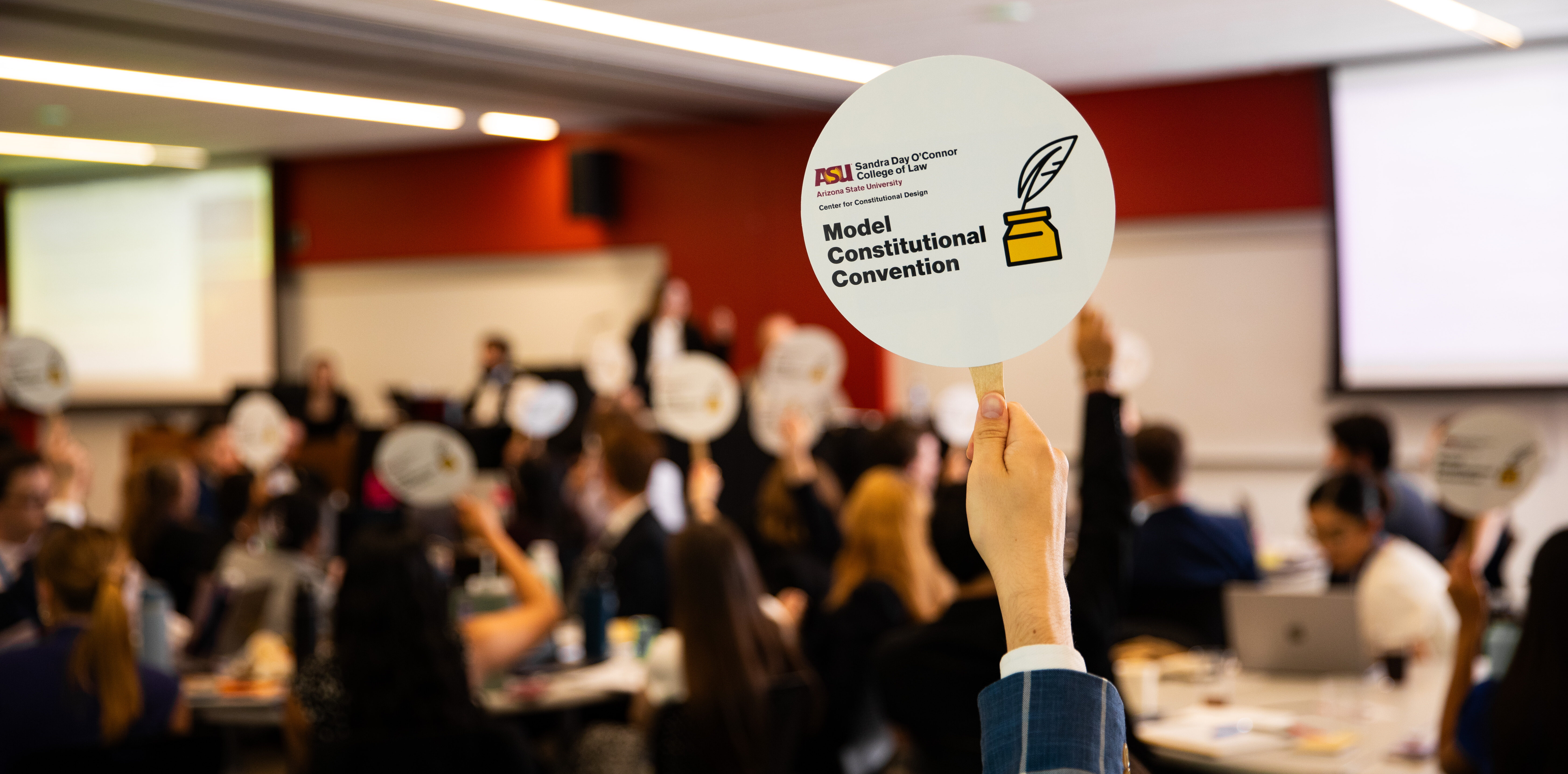
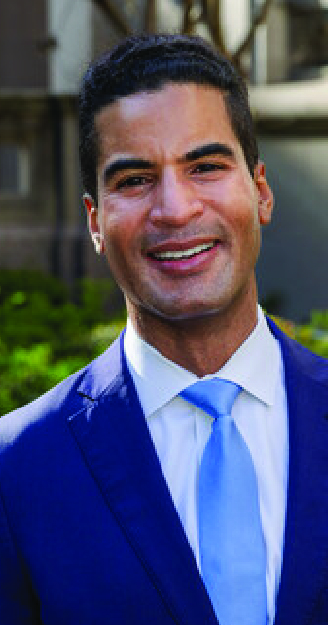
University of Texas
at Austin
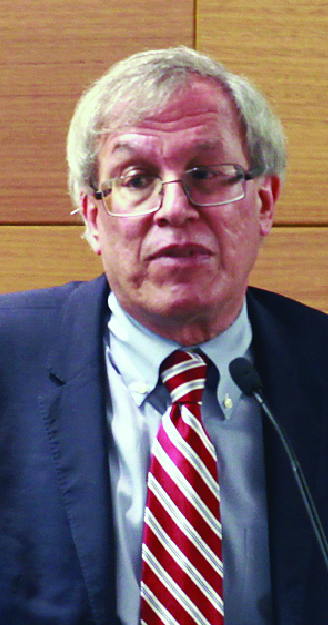
UC Berkeley
School of Law
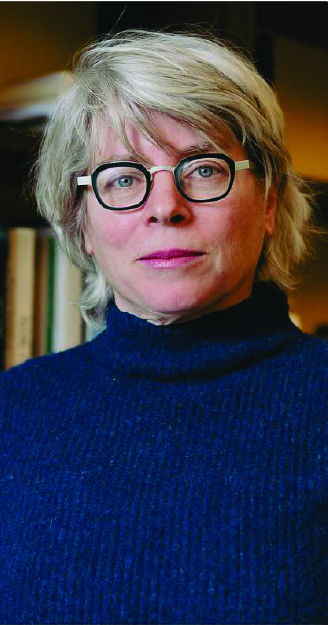
Harvard University and the Amend Project
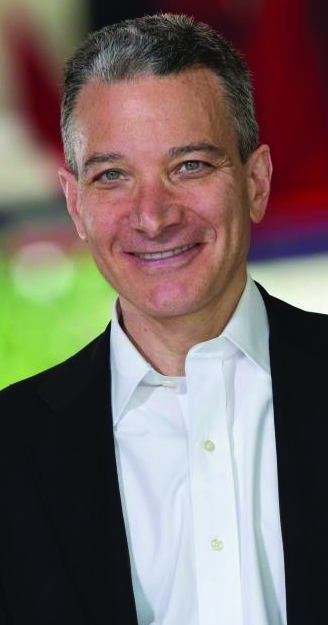
National Constitution Center
Student Testimonials
“I left [the MCC] with a newfound belief that amendments and therefore change, was possible. Amendments to the Constitution no longer felt like something to be studied in class but something I could be a part of creating.”“When I think about the Constitutional Convention, I think of a large group of passionate people, packed into a hot and sweaty room… We spent hours in what felt like pure frustration, only to rise in cheers when we passed something into law… I emerged with the distinct impression that I had learned more… than I had in years of study.”
“The Model Constitutional Convention was an absolutely incredible experience that reinvigorated my love for democracy… It reminded me why I love constitutional law and made me think about finding ways I can advocate for Constitutional reform in the future.”
“As a student interested in constitutional reform and the state of our country in general, this Model Constitutional Convention was an invaluable experience. Besides putting me in contact with constitutional luminaries, enlightening mentors, and bright peers, the convention was a wonderful opportunity to imagine and discuss what our ideal constitution would look like.”
Press Coverage:
- PBS Interview with Stef Lindquist
- JURISTnews: Creating Constitutional Community: ASU Law to Host the First Student-Led Model US Constitutional Convention
- JURISTnews: Takeaways From the First Student-Led Model US Constitutional Convention
- Day 1 – JURISTnews: Arizona dispatch: US university students convene for a Model Constitutional Convention at a critical juncture in a divided country
- Day 2 – JURISTnews: Arizona dispatch: students from 70 law schools and universities debate 20 proposed amendments to the US Constitution at model convention
- Day 3 – JURISTnews: Arizona dispatch: student delegates to Model Constitutional Convention pass proposed amendments on equal rights, tribal sovereignty, gerrymandering and eminent domain limits
